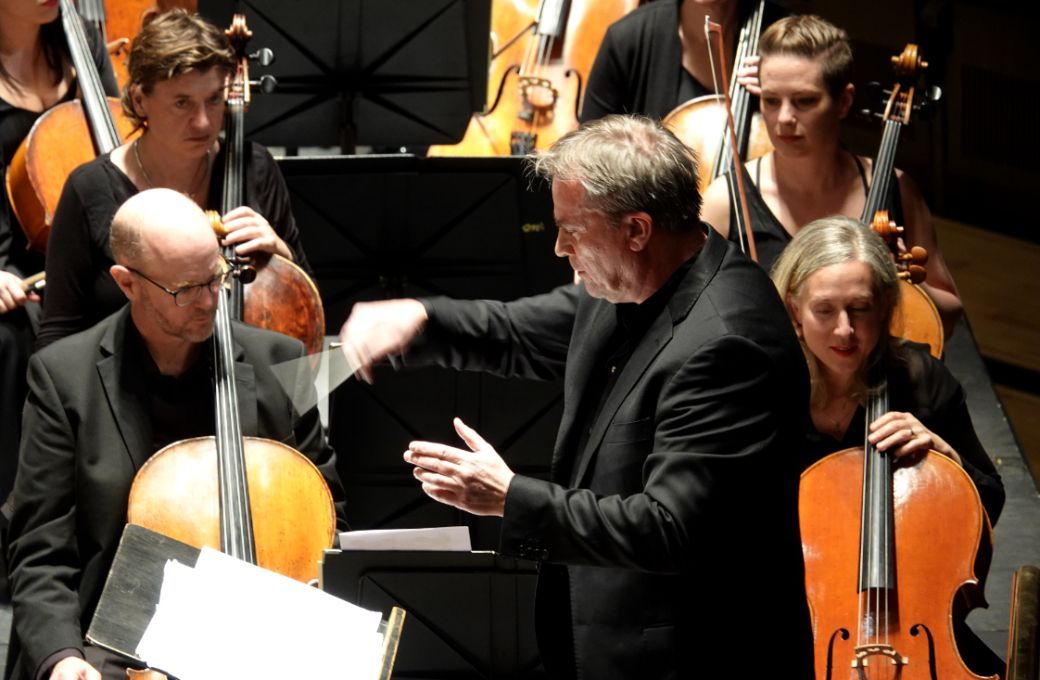All three pieces in this BBC Philharmonic Saturday evening concert were written with extra-musical elements in mind. The first was the only familiar piece, Sibelius’ tone poem Pohjola’s Daughter, based on an episode from the Finnish epic poem the Kalevala. Chief Conductor John Storgårds and his orchestra told the tale of Väinämöinen’ encounter with the Maiden of the North, bringing out the varying colours of Sibelius’ magical score. From the yearning cello solo at the beginning they evoked the mysterious world of Nordic legend, through intense, sometimes threatening, episodes to a breathtaking final pianissimo. This was a gripping account by an orchestra on top form and a conductor well-known for his Sibelian interpretations.

How far we could relate particular moments in Sibelius’ music with the events in the story is another matter. This correlation between music and non-musical elements struck me as much more of an issue in Sofia Gubaidulina’s In tempus praesens. The composer, who reached her 92nd birthday a few days ago, wrote her second violin concerto for Anne-Sophie Mutter who gave the 2007 premiere. The significance of the work’s title is obscure; the composer has referred to a transition from past to future. There is spiritual intent in the music: the composer’s first name and part of that of the first performer – Sophia – relate to the Greek for “wisdom” and is important in the Russian Orthodox church, but I found this unhelpful in understanding the music.
Since 2007 several violinists have taken up this concerto. Tonight Tobias Feldmann played with commitment and verve. It is written for a huge orchestra with extra brass and percussion, a piano and a harpsichord, but no violins. They created some remarkable sounds, especially the tinkling and rattling from the percussion with bursts from the tam-tam at key moments. Feldmann’s part was often lyrical, even sweet, but juxtaposed with harsher material from the orchestra. His solo cadenza gave him the opportunity to demonstrate his virtuosity as in a traditional concerto, which he did with gusto. Orchestra and soloist rarely play together, so the soloist was never overwhelmed. When they did come together, as in a striking exchange between Feldmann and the other strings playing in unison, later joined by percussion and winds, it was as dramatic as it was unexpected. The conclusion was intense, even ecstatic, and drew huge cheers for Feldmann.
Einojuhani Rautavaara’s Symphony no. 7, “Angel of Light” was written in 1994 and revised the following year. The composer wrote several works whose titles refer to angels but he explained that these were not the angels of classical art but fierce, angry creatures and Jungian archetypes. Yet these works did not have programmes. I am confused. However, the music itself is quite approachable and involving. The first movement is marked tranquillo and has a gentle, bucolic feel. In contrast the second, a sort of Scherzo, was energetic and angry, but this led into the slow come un sogno slow movement with beautiful parts, notably a lovely violin solo for the leader. The symphony was rounded off with a pesante finale introduced by striking brass chords and featuring agreeably burbling woodwinds leading to a satisfying, peaceful conclusion. Interesting and enjoyable, but I didn’t detect any angels. But the BBC Philharmonic and Storgärds played as if this unfamiliar music was their everyday fare and I cannot imagine better advocacy.


